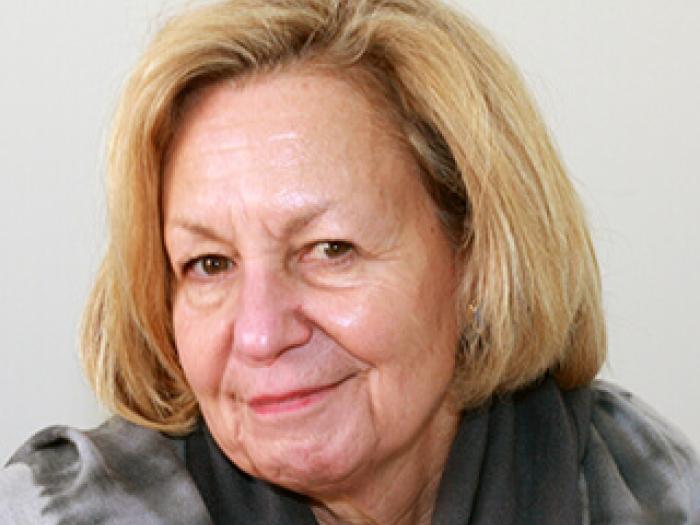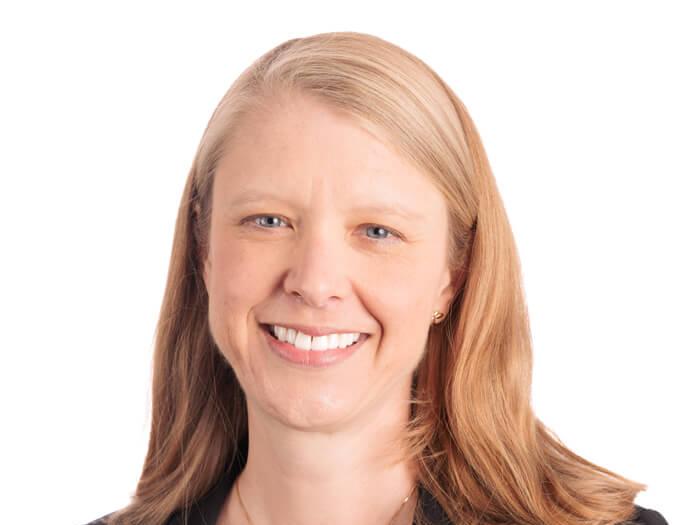Doctorate in Special Education
Lead the Way in Creating an Equitable and Inclusive Education System
GW's Doctorate (EdD) in Special Education utilizes a cross-disciplinary approach to the preparation of special education scholars and leaders. The program is designed to support the development of doctoral students as they acquire knowledge in the fields disability studies, developmental sciences, and special education to meaningfully translate that knowledge to the most pressing issues related to development, learning, school-based practices, and community-based programming for students with disabilities.
Students collaborate with faculty in the areas of early childhood education, secondary and transition to post-secondary education, culturally and linguistically diverse learners, and youth identified with various developmental delays and disabilities.
We're looking for students who are passionate about improving outcomes for children and families, and who are eager to work with transdisciplinary partners to advance research in this field.
Transform Knowledge into Action
Our program infuses cutting-edge theoretical lenses in the field of SEDS to translate and apply research related to learning for diverse populations, developing scholar leaders who are changing the landscape in academic and community settings.
Collaborative Research
Students have a unique opportunity to work alongside SEDS faculty, who are nationally recognized researchers in the field, on funded research projects, resulting in a wide range of experiential learning outcomes, such as presenting at conferences and co-authoring research publications.
Convenient Schedule
Courses are scheduled once a week in late afternoons and evenings (Monday-Thursday) to accommodate the schedules of working professionals, and for internship experiences.
The GW Advantage
Benefit from our unique location in the heart of our nation’s capital. With close proximity and connections to government and private organizations, along with the area's diverse school settings, our students have access to opportunities to truly affect systems change in special education policy, research, and practice. Our diverse community allows students to explore and investigate the most pressing issues in the education and development of students identified with disabilities, as well as support a more inclusive and equitable world.
Degree:
Doctor of Education (EdD) in the Field of Special Education
Department:
Special Education &
Disability Studies
Course Delivery:
Foggy Bottom Campus
Program Entry:
Fall
- Our Mission
The mission of the doctoral program in the Department of Special Education and Disability Studies (SEDS) is to prepare scholars and leaders to translate and apply interdisciplinary theory and research at the school, local, state, and federal levels for people with disabilities. Scholars draw from findings in developmental science, disability studies, and evidence-based special education approaches to develop and implement equitable, inclusive practices for students and adults with disabilities. Our mission is to prepare doctoral candidates for leadership roles in special education and related fields with a strong foundation in special education research and practice and an expertise in disability public policy.
- Curriculum Requirements
The following requirements must be fulfilled: 54 credits, including 12 credits in foundation courses; a minimum of 15 credits in research courses, including 3 credits in advanced research; a 3-credit internship; 9 credits in elective courses; a minimum of 15 credits in dissertation courses; and successful completion of a comprehensive examination.
Code Title Required Neuroscience Foundations (6 credits) SPED 8306 Advanced Study in Development Science and Variance I: The Early Years SPED 8310 Advanced Study in Development Science and Variance II: The Later Years Leadership Foundations (6 credits) SPED 8308 Preparation for the Professoriate in Special Education SPED 8352 Disability and Public Policy Research Tools (15 credits) SPED 8304 Research and Trends in Special Education (Literature Review) EDUC 6116 Introduction to Educational Statistics EDUC 8120 Group Comparison Designs and Analyses EDUC 8122 Qualitative Research Methods Advanced Research Elective 3 credits in Level B research methods coursework selected in consultation with the advisor. Internship SPED 8354 Doctoral Internship: Special Education Electives 9 credits in interdisciplinary elective courses selected from the following in consultation with the advisor: SPED 6299 Federal Education Policy Institute SPED 8303 Administration and Supervision of Special Education SPED 8311 Doctoral Proseminar: Scholarly Writing in Applied Settings SPED 8345 Consultation and the Change Process Dissertation SPED 8998 Doctoral Seminar in Special Education SPED 8999 Dissertation Research (taken for a minimum of 12 credits) Comprehensive Examination Successful completion of a comprehensive examination is required.
Apply Now
GSEHD’s Office of Admissions invites you to apply for a spot in our program. Please review the following admission and financial information.
Ready to take the next step in your career? Review our step-by-step guide to applying to GSEHD >
To learn more about the program, admission process, and upcoming events, please connect with the GSEHD Admissions Team at teachinfo![]() gwu [dot] edu (teachinfo[at]gwu[dot]edu) or 202-994-9283.
gwu [dot] edu (teachinfo[at]gwu[dot]edu) or 202-994-9283.
| Apply Now | Schedule Consultation with Admissions Coach |
To be considered for admission, applicants must submit the online application form as well as the following required supporting documents. There is no application fee.
- Prerequisite: Master's Degree
- Resume
- Statement of Purpose
- 2 Letters of Recommendation (must be academic)
- Transcripts from all previously attended colleges or universities
*Additional application requirements may exist for international applicants.
Applications are being accepted for Fall 2026. We encourage you to apply as early as possible.
Application Timeline Fall Priority Deadline Nov 1 Round 1 Deadline Dec 1 Round 2 Deadline Jan 15 Round 3 Deadline March 1 Round 4 Deadline May 1 Round 5 Deadline June 15 Round 6 Deadline Aug 1
For more information or to inquire about the next admissions cycle, contact the GSEHD Admissions Team at teachinfo gwu [dot] edu (teachinfo[at]gwu[dot]edu) or 202-994-9283.
gwu [dot] edu (teachinfo[at]gwu[dot]edu) or 202-994-9283.
Tuition & Financial Aid
We know embarking upon graduate school is a big decision - due in part to the costs of attending. At GW, we understand the time and thought behind making graduate school work for you. Please take a moment to learn more about the options and opportunities available to help fund your graduate education.
Graduate tuition is charged per credit hour, unless otherwise noted. Rates vary by program and location.
The tuition rate* for the EdD in Special Education program is $1,960 per credit hour.
This program requires 54 credits.
Please note: Additional fees may apply for international students, late fees, etc. Current tuition rates may be updated during the year.
*Summer 2025, Fall 2025 and Spring 2026
Scholarships are available to eligible admitted students. Review eligibility requirements and learn more about funding your education >
The national, even global perspectives in my fields of passion that GW offered me through various co-curricular experiences are essential to my career development and are something I cannot get anywhere else. Also, as an international student and a working mom, the support and understanding I’ve received from the program have been invaluable. I'm truly grateful for my experience at GW and proud to be part of such a forward-thinking and loving community.
XINXIA LI
Current Student, EdD in Special Education
Career Outlook
Graduates are prepared to have an impact through leadership in academic settings, research communities, policy institutions, and advocacy organizations. You will become a leader, innovator, and change agent in the field of special education.
- Special Education Career Opportunities
-
Our graduates serve as:
- Academic Faculty
- Research Scientists
- Senior-level Policy Analyst
- Special Education Program Directors/Coordinators
- Potential Employment Settings
-
- Universities or Colleges
- PreK-12 Educational Settings
- Policy Think Tanks
- Research Organizations, Centers, and Institutes

Associate Dean for Research and External Relations; Director of Accreditation; Professor, Special Education and Disability Studies



Assistant Professor, Special Education and Disability Studies


Department Chair and Associate Professor, Special Education and Disability Studies








